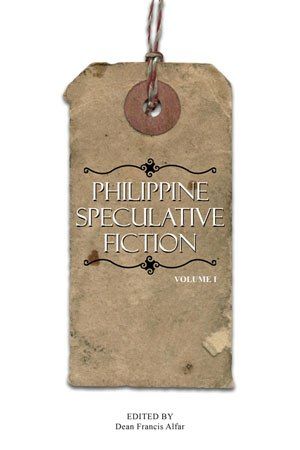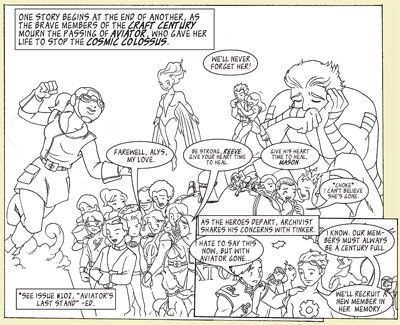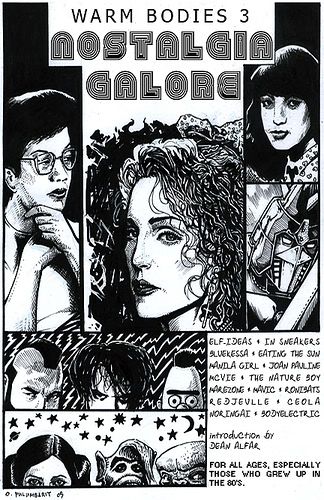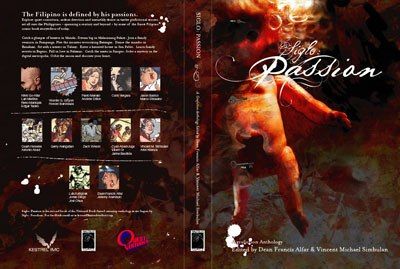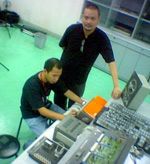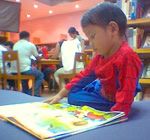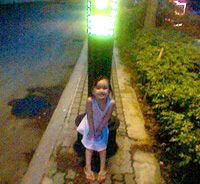I arrived at Kanigaran late towards early evening, dust-covered and hungry. At the jeepney station I saw an old woman selling cashew nuts and bandi and remembered the moment of my father’s first arrival years ago. Along the intersecting streets I found manifold evidence of the influence of the Vietnamese refugees, boat people who came in waves to escape the horror of war that infested their country. The tiny Vietnamese restaurant I chose to eat at was filled with a number of Caucasian divers on their way back or heading on towards some nearby island. Two small pieces of chicken wrapped in pandan leaves and lemon grass-infused noodles composed my dinner that night, along with the inevitable Coke of my addiction.
I recall thinking about of how a people’s culture can be uprooted, carried away and planted in another place. The Philippines has always seemed to be the country other people come to, to conquer, to trade with, to rescue or to start a new life in – a nation that embraced others, willingly or otherwise, to the detriment of its own people’s identity. The confluence of cultures did nothing to merge us into a single multi-cultural people. Instead, it underscored the difference between the haves and the have-nots. This was just before I graduated from the University of the Philippines, and the often misplaced sense of nationalism, with its accompanying sense of profound outrage, occupied much of my thought life. I thought about people who left the country for a better place, in the same manner that my father left the Philippines to write in the United States.
But most of all, I thought about the reason I was in Kanigaran, and of the serendipitous mention on the PAL flight there of one of the two persons I came to visit. I took it as a positive omen, a habit my brothers and I learned from our mother. I had decided earlier to write the story of my mother and father and the tumultuous events that they separately insisted occurred. It began as a school requirement and blossomed into something intensely personal, enough to make me travel to my mother’s hometown.
Kanigaran did not at all resemble the magical place of tremendous floods, flying albinos and undeniable passion that dominated all the stories I knew. The streets and houses of my imagination were brave survivors of the storm of storms, bearing the scars of relentless rain and winds that threatened to reduce them to nothing. I expected to be overwhelmed by coconut palms by the hundreds of thousands, their branches looming with secrets they witnessed through the years. Most of all, I did not expect to see children. I was wrong in every regard, finding myself walking past sari-sari stores and gated houses, profuse vegetable plots and bowers of bougainvilla and hanging orchids, and children playing in pools of light on paved roads. I tried to keep my growing sense of dismay under control and focused on my purpose.
Before it grew too dark, I took a tricycle to the address given to me by mother and located the schoolhouse of her implacable nemesis, Mrs. Helen Brown. The building was in a sad state of disrepair, abandoned and apparently unused for many years. The main door was barred so I walked to a nearby window and peered into the shadows, making out the three blackboards on the wall. The main floor was bereft of chairs or study desks though I imagined that a few remained in one of the inside corners, away from my vantage point.
I traced the perimeter of the building and found the remnants of the annex where Mrs. Brown must have lived. There was nothing but a broken outline of hollow blocks and the unmistakable evidence of a fire. I stepped into the emptiness and tried to feel the venomous abhorrence that possessed the lonely woman, imagining that such a potent force should linger in the place where it was nursed for years. I sensed nothing and left disappointed, avoiding the questioning stares of some children that followed my visitation.
Another tricycle driver helped me find the house of the Abalos family. Kanigaran, though it had grown in leaps and bounds in the past decades, still clung to many of its old ways, and that included the near impossibility of an established family changing residences. The house was two storeys tall and made of wood, black iron, cement and GI sheets. A balcony overlooked a fragrant garden of ilang-ilang and sampaguita plants. Over the main door, flanked by a pair of gasul lamps, was a plaque of the Blessed Virgin Mary was, one arm raised in benediction, the other hand holding her Sacred Heart.
A young girl woman peered at me through the jalousies of the ground floor. She asked me who I was and what I wanted. I told her my name and said that I was looking for a certain Cesar Abalos, that he was a friend of my mother’s, and that I just wanted to pay my respects.
The girl opened the door with a smile, explained that she was
Lolo Cesar’s granddaughter and told me to sit in the narrow living room before leaving me to call him. I noticed a black armband around her left arm and remembered that this was a family mourning the loss of one its sons.
I sat on the red sofa, still covered in the its original plastic now yellowed, brittle and missing in places and absorbed the details of the room: framed photographs of faces that rarely offered a smile in sepia and black and white, the small recessed shrine to the Santo Niño, the interrupted chessboard near the window, the serrated buntot pagi and the American and Philippine flags that were suspended side by side on a wall.
“Good evening, sir,” a strong voice began in the accented English unique to persons of the immediate prior generation. “I understand that you are looking for me. Who are you, sir?”
I stood up and walked to the speaker, an old man leaning on a cane carved with spirals. Cesar Abalos’ body carried strong echoes of his lost youth. His shoulders were still broad though much of his vaunted musculature had been eroded by time, a black armband loose around his left arm. But his eyes and face retained the handsome qualities that must have played a part in attracting my father if the stories were true.
“Good evening, sir. My name is Antonio Rivera ,” I said, taking his free hand and pressing it to my forehead as a sign of respect. “I’m here from Manila. I think you knew my parents, long ago. I would like to talk to you, if you have some time. If you don’t mind.”
“Sit, sit,” Cesar said, pointing with his cane to the sofa. “You already know my name, I know. Oh, would you like something to drink? Have you eaten dinner?”
“No, thank you, sir,” I replied, shaking my head. “I ate at one of the restaurants along the Plaza.”
“Coffee, at least,” he said, gesturing to one of the faces that watched us from the newels of the stairs. “Who are your parents?”
“My father is Gaudencio Rivera,” I told him. “My mother’s name is Jacinta Cordova.”
“Are they dead?” he asked, meeting my eyes.
“No, sir,” I said. “Both are alive.”
“That is good to hear,” he smiled, revealing a set of teeth that would be the envy of any younger man. “When people ask me about people I knew in my time, I am always afraid that it has something to do with death.”
“My condolences on your loss, sir,” I offered.
“Thank you,” he said, touching his armband briefly. “Did you know my son? Did you know my Carlito?”
“No, sir,” I answered.
“He was a good boy,” Cesar said.
Silence settled upon us, the palpable stillness of grief too raw and fresh.
“
Lolo Cesar, were you close friends with my parents?” I asked after a few moments.
The old man did not reply, his face frozen in its last cheerless expression. His motionlessness was only broken by the coffee’s arrival, served by his granddaughter, still steaming in porcelain cups on a tray.
“I knew them well,” he said softly. “Yes, I knew them both.”
My heart thundered at his admission and the questions I had prepared, worded discreetly taking into account sensitivity and the passage of time, vanished in the turbulence of my excitement.
“It was a long time ago,” Cesar said. “The world was a different place. We were so young.”
I waited for him to continue, sipping the hot coffee. When he spoke again it was as if all the other household sounds and those from streets gradually muted, diminishing in deference to the old man’s recollections.
“It’s all about love,” Cesar Abalos said with a sad smile. “The love between Dencio and Intang. It was too large, too big, for just two people. It swallowed everyone, in the end.”
------
Note: These excisions are passages that never quite made it to the final version (in this case, of the novel) for a variety of reasons. While it is painful to think about just cutting bits and pieces that represent hours of work, it is a necessity - don't fall in love with your text. Early on in Salamanca, I thought about changing POV when the narrator (I had one then) was in the present time.
